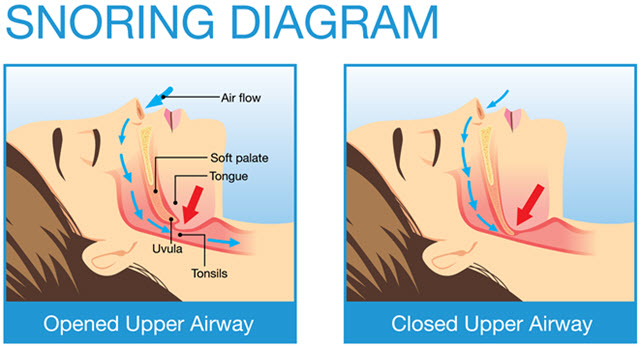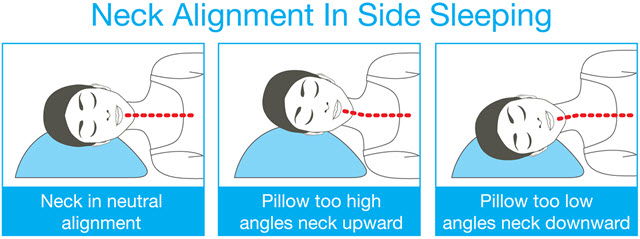Anti-Snoring Pillows
Stop Snoring and Sleep in Comfort
What some bed partners would give for anti-snoring aids and a specially designed pillow seems to answer the call. Anti-snoring pillows attack a sleeper’s urges to snore in a couple of ways. Most chronic snorers are back sleepers, they fall asleep on their backs, mouth wide open, jaw relaxed and dropped backward, and tongue slipping to the back of the mouth and blocking the airway. When your airway is blocked in this way while you sleep you snore.

Most people who snore are not the ones suffering sleep deprivation or chronic insomnia—it’s the spouses, significant others, and bed partners who must troubleshoot the problem.
Along with anti-snore nasal strips and mouth guards, the crop of snore pillows rounds out the anti-snore arsenal.
Features of Anti-Snoring Pillows
Common features available in pillows that stop snoring:
- Hypoallergenic materials
- Washable and dryable at home
- Travel sized so you can take it with you
- Shaped to align your head and shoulders maintaining an open airway and sideways position
- Shaped to fit your body ergonomically while side-sleeping

Types of Anti-Snore Pillows
The general idea behind a pillow designed to stop snoring is that once a snorer is positioned on his or her side, the snoring generally stops. Anti-snore pillows then are created to keep you perched comfortably sideways. To these ends manufacturers continue to try and one-up competitors with strategic foam shapes and state of the art materials that contribute to the overall sleep quality. Common shapes are:
- wedge (which looks like a right triangle)
- cervical support
- memory foam
- straight full-body pillow
- U-shaped body pillows which are commonly used by pregnant women
- or some combination of the above
When Snoring is a Symptom of Sleep Apnea
One of the challenges in trying to “cure” snoring is that this annoying sleep habit can be a symptom of something much worse: sleep apnea.
Obstructive sleep apnea is one of the most common sleep disorders and it’s often characterized by noisy snoring. But snoring is not the chief symptom of obstructive sleep apnea—the gaps in breathing are the biggest sign. Doctors argue that some of the simplistic anti-snoring gadgets on the market may be doing more harm than good especially if they are only masking this sleep apnea.
Best advice: if your bed partner has a bad snoring problem make certain that it’s not a symptom of sleep apnea—which could be symptomatic of serious medical conditions—before you invest in a brigade of anti-snore devices, including the pillows. Treating the sleep apnea will improve their health and may very well fix the snoring.
